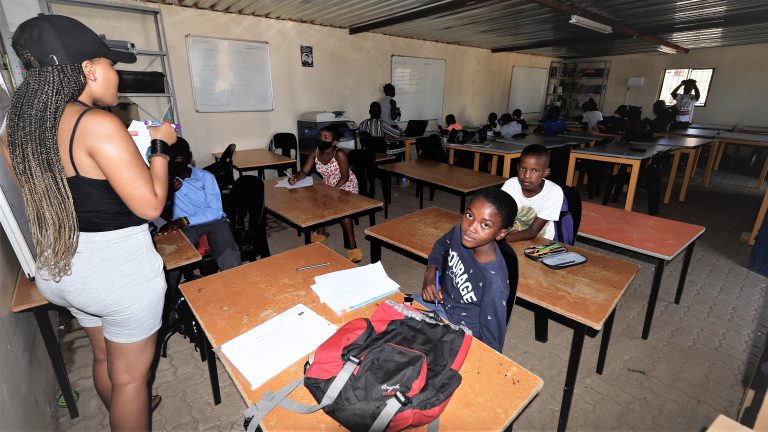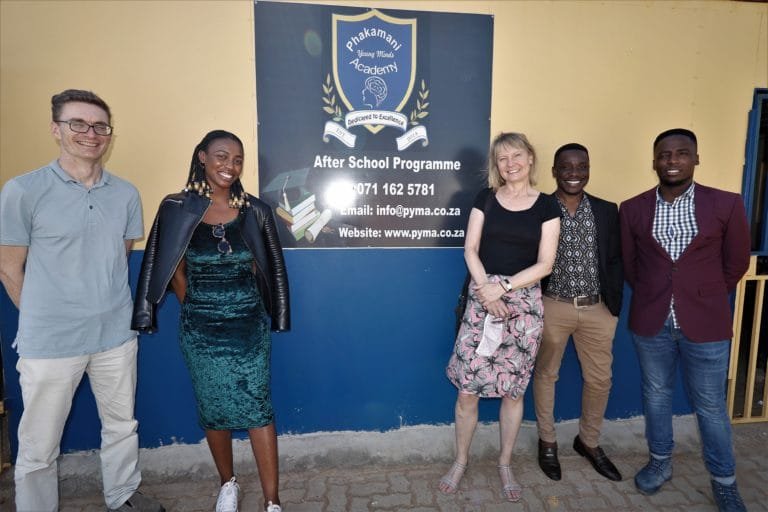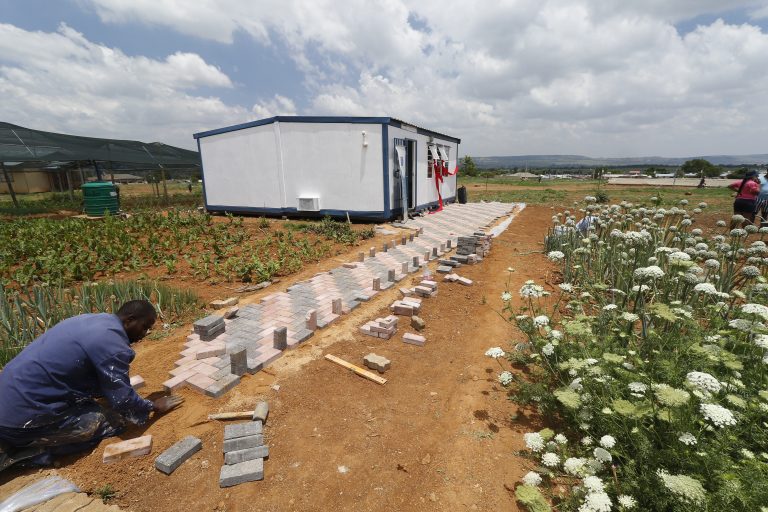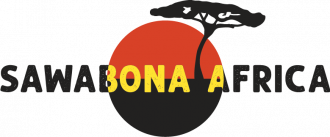Falling in love with PYMA – supporting township After School Programmes
Zilla Stekhoven: Founder of Sawabona Africa
Imagine going to school in a class that is overcrowded. Hungry. You have started school without the basic fine motor skills, or entry level language skills and you just can’t keep up. When you go home after school, you have nobody to help you with your homework, or your caregiver can not read. Your neighbourhood is rife with gangs, drugs, alcohol abuse, crime and high unemployment. As a young woman, you may have been exposed to Gender Based Violence and cannot go to school when you have a monthly cycle as you have no sanitary products. This is the reality faced by the majority of black children growing up in the townships of South Africa. But there is hope for many children. In this blog you will learn about my encounter with PYMA and opportunities offered to children through afterschool academies such as PYMA.

In my blog ‘Growing up under apartheid’. I wrote about the state of education in South Africa. It goes without saying that those who have resources have a safe space to study, have access to books, internet, receive support with homework and a plethora of extra mural activities. The remaining children attending no fee-paying schools are those that fall behind in school and do not have a safe space to go to afterschool. This structural inequality gap can be successfully bridged through After School Programmes.
What is the inequality gap experienced by disadvantaged learners?
Students in no fee-paying schools face a plethora of challenges: On an academic level, they attend overcrowded classes, their teachers lack full knowledge of the subject matter they teach, and higher teacher absenteeism. On a health and safety level, many children go to school hungry, are exposed to risky behaviour such as Gender Based Violence, drugs and gangs. Many caregivers have long commutes to work, and lack time to support them with homework after class and often limited literacy levels. Many schools lack resources such as books, e-learning and do not offer extra mural activities (art, sport, games). It is no surprise that the learners attending these schools fall behind academically in so many ways or drop out of school early.
What do afterschool programmes offer?
After School Programmes (ASP’s) are more than a safe space for children to come to after school. They ‘fill the gaps between kinds of support middle-and working-class children receive by providing targeted support to schools, teachers, caregivers and learners.’ 1. Interventions can differ between programmes, however in South Africa a key focus is on the school curriculum for learners, where children have targeted lessons to supplement the learning gaps at school. In addition, ASP’s provide opportunities for e-learning, mentoring, tutoring, extra mural activities (arts and crafts, sport) and school leavers are assisted in applying for university and accessing student grants

Love at first sight
When starting Sawabona Africa, I came across Phakamani Young Minds Academy (PYMA), conducting an After School Programme in the heart of Soweto a township in South Africa. PYMA offers all the above support to learners in the local community. After a fruitful email exchange with Mthandazo Khumalo executive director, I decided to go with my husband Claus to do a site visit and meet the team. Claus was nervous driving into a township after all the bad press about crime in South Africa, but we were assured that there would be no problem. What we experienced will stay with us for ever. We were welcomed by locals on the street and received only positive vibes from the community. The PYMA team was sharing a tiny room at the back of a house, there was no space for us to sit. They shared with us how the academy started in a garage at the home of the founder’s grandmothers house and how it has grown. We drove together, squashed in our car to the academy, and were blown away. One container classroom, 4 – 5 classes happening simultaneously, school children eager to learn undistracted by the other lessons. The energy of staff, tutors, all students was enchanting. We were hooked.
Our first container classroom

We asked what was their most pressing need. A new classroom. They had more learners interested in attending the academy, but 1 classroom was not sufficient. We agreed after the due diligence was completed to raise funds for a new container classroom to help them reach more children. Fast track to the delivery of the first container, the joy I experienced receiving videos and pictures all day of the truck arriving to the completion of the classroom is still felt today. On video, we can hear Mthandazo say ‘Wow it is big’ as they had expected a classroom half the size.
Celebrating with the community.
We flew in to Soweto for a beautiful celebration with learners, tutors, parents and staff. Paving stones were still being layed, Claus had to dig a hole in a stony ground to plant a lemon tree and the chorus of joy ran far and wide throughout the community so much that the waiting list for the academy continues to grow.
We are on a mission to purchase as many classrooms as PYMA needs. The more classrooms they have, the more children they can support to get the quality after school support they deserve. Every euro donated goes directly to this project.
- THE AFTER SCHOOL PROGRAMMES IN SOUTH AFRICA : THE INVESTMENT CASE. Joy Oliver April 2021
